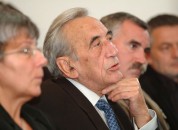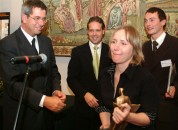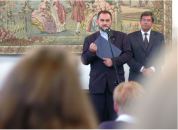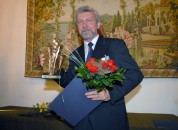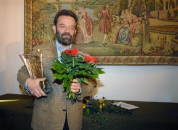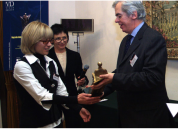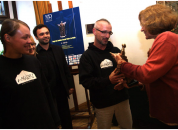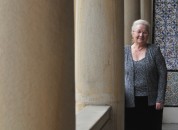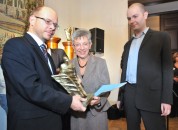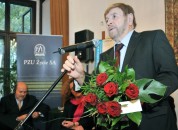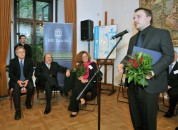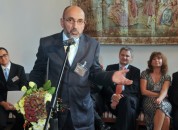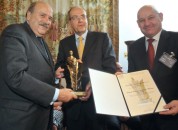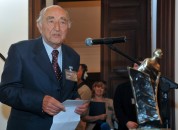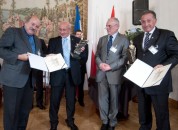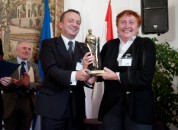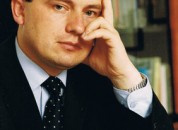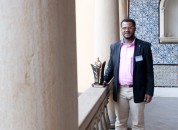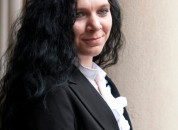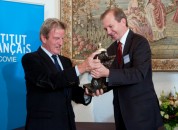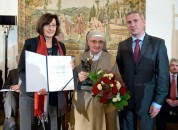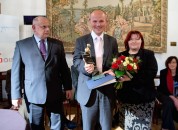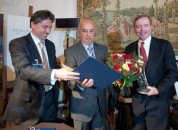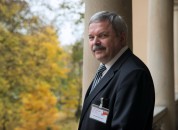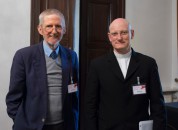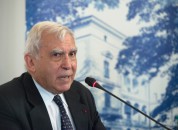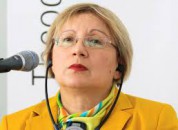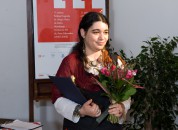Following the initiative of the Villa Decius Association, the Prize of Sérgio Vieira de Mello, the UN High Commissioner for Human Rights (2002-2003) was established in the year 2003 with an aim to promote human rights, democracy and tolerance and had its first edition already in 2004. The permission to establish the Prize was granted by Sérgio’s mother, Madam Gilda Vieira de Mello.
Since 2011 it is called “The Polish Prize of Sérgio Vieira de Mello, the UN High Commissioner for Human Rights (2002-2003)”.
The Prize is awarded annually in two categories:
- a person
- a non-governmental organisation
The Prize is awarded to individuals and organizations from all over the world by the Panel of Judges composed of High Representatives of: the President of the Republic of Poland; UN High Commissioner for Refugees; Ambassador of the Federative Republic of Brazil to Poland; Ambassador of the Kingdom of Sweden to Poland; Polish Ministry of Foreign Affairs; Polish Commissioner for Civil Rights Protection; President of Krakow; Embassies, Consulates and Foundations supporting actions of the Villa Decius Association in matters related to human rights; Founders of the Prize; Chairman and Director of the Villa Decius Association.
The Laureates receive a personal Diploma and a statuette of Sergio Vieira de Mello designed by an outstanding Polish artist, Andrzej Renes. The Prize may also have a financial dimension. The ceremony of awarding the Prize takes place annually in October within the framework of international conferences dedicated to the idea of freedom organized by the Association at the Villa Decius in Krakow.
Honorary patronage:
- Ambassador of the Federative Republic of Brazil to Poland
- Ambassador of the Kingdom of Sweden to Poland
- United Nations High Commissioner for Refugees
We invite you to watch the film dedicated to Sérgio Vieira de Mello and the Prize itself:
Regulations of the The Polish Prize of Sérgio Vieira de Mello, the UN High Commissioner for Human Rights (2002-2003): REGULATIONS-OF-THE-PRIZE-OF-S--RGIO-VIEIRA-DE-MELLO
Rules of The Polish Prize of Sérgio Vieira de Mello, the UN High Commissioner for Human Rights (2002-2003): DeMello_RULES



















